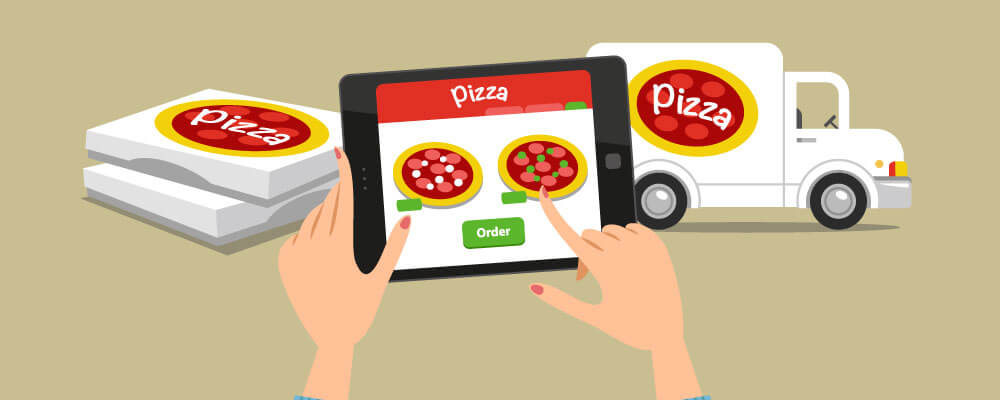We all have a firm grasp on what a website is. And we’ve got a handle on the concept of a mobile app. But what exactly is a web app? Can a web app also be a mobile app? (Answer: kind of, but not really). Can a website also be a web app? (Answer: sometimes but not always). Depending on who you ask, answers can be ambiguous. But since you asked me, I’ll attempt to bring some clarity.
Website vs Web App
Let’s start with the difference between a website and web app. Most folks use the term “website” to describe anything internet-related. And they are basically correct. After all, a web application typically resides on a website – which explains some of the confusion. Strictly speaking, a website is static and informational, while a web app is interactive. That’s the key difference: interactivity.
By way of example, consider the online presence of a pizzeria. Your local, mom-and-pop, pizza joint will list its menu, options, directions, and hours of operation. Static and informational. Kind of like an online brochure. What we have here is a website.
However, if you are ordering takeout from one of the national pizza chains, you’ll have the option to digitally add pineapple (never do this) and extra cheese. As you add ingredients and change your style of crust, you’ll see an image of your masterpiece change on the screen. Once you have assembled the world’s most perfect pizza, you can order and pay for your lunch online. That’s the difference: interactivity. Whenever the user has control, you have yourself a web app.
Web applications rely on dynamic user input (for example, the decision to order bacon as a topping instead of pepperoni). Behind the scenes, the application is communicating with a database to retrieve pricing and ordering information. This information is then relayed back to the user and displayed on the screen.
Web App vs Mobile App
So, let’s take our pizza analogy a step further. If you are ordering pizza from your mobile phone, does that count as a mobile app? Nope. Technically, you’d still be using a web app. Mind you it would be a mobile responsive version of a web application, or “mobile web app” for short. The most basic difference is that a web app runs on an internet browser while a mobile app runs on the device itself.
If you are a pizza aficionado, and continually order from your favourite pizzeria, you could download and install that company’s app directly to your smartphone. You’d no longer be using the web-version of the app. It’s interesting that the casual observer wouldn’t necessarily notice a difference in functionality. It is simply a matter of whether the app is running on an internet browser or on the phone itself.
What may not be so simple, is your decision whether to build your app to run on a browser, or build a native mobile app. Or both?
Building a mobile app is a more involved, and expensive, process. Each device has its own operating system and uses its own software development kit. The tools and scripting are different for each mobile platform. Development, testing and quality control are performed independently for iPhone and Android devices. On the upside, mobile apps are generally faster and more efficient for the user. They are fully compatible with the native features of the phone (camera, gps, alerts, etc). They are also an excellent way to build brand loyalty versus the ephemeral nature of a web app.
In contrast, developing a web-app is a comparatively budget-friendly approach. One benefit is that we build it once, and it can be used directly from the browser of any smartphone, tablet or PC. As users begin interacting with your program, there will invariably be changes and improvements. Conveniently, updates are invisible to the user (whereas mobile users need to repeatedly download and install revisions directly to their device). Making enhancements to a web app is an easier process and only needs to be performed once as it propagates to all devices.
Most startups have a lean budget and are best to test the waters with the less expensive option. Once you gain traction, then you will be in a better position to develop a true mobile app.
If you have an idea for the next killer app (other than a pizza-ordering app), then give us a call and let’s discuss your ideas. Since NetGain is a leader in digital marketing and application development, we are well-positioned to bring your idea to life.



